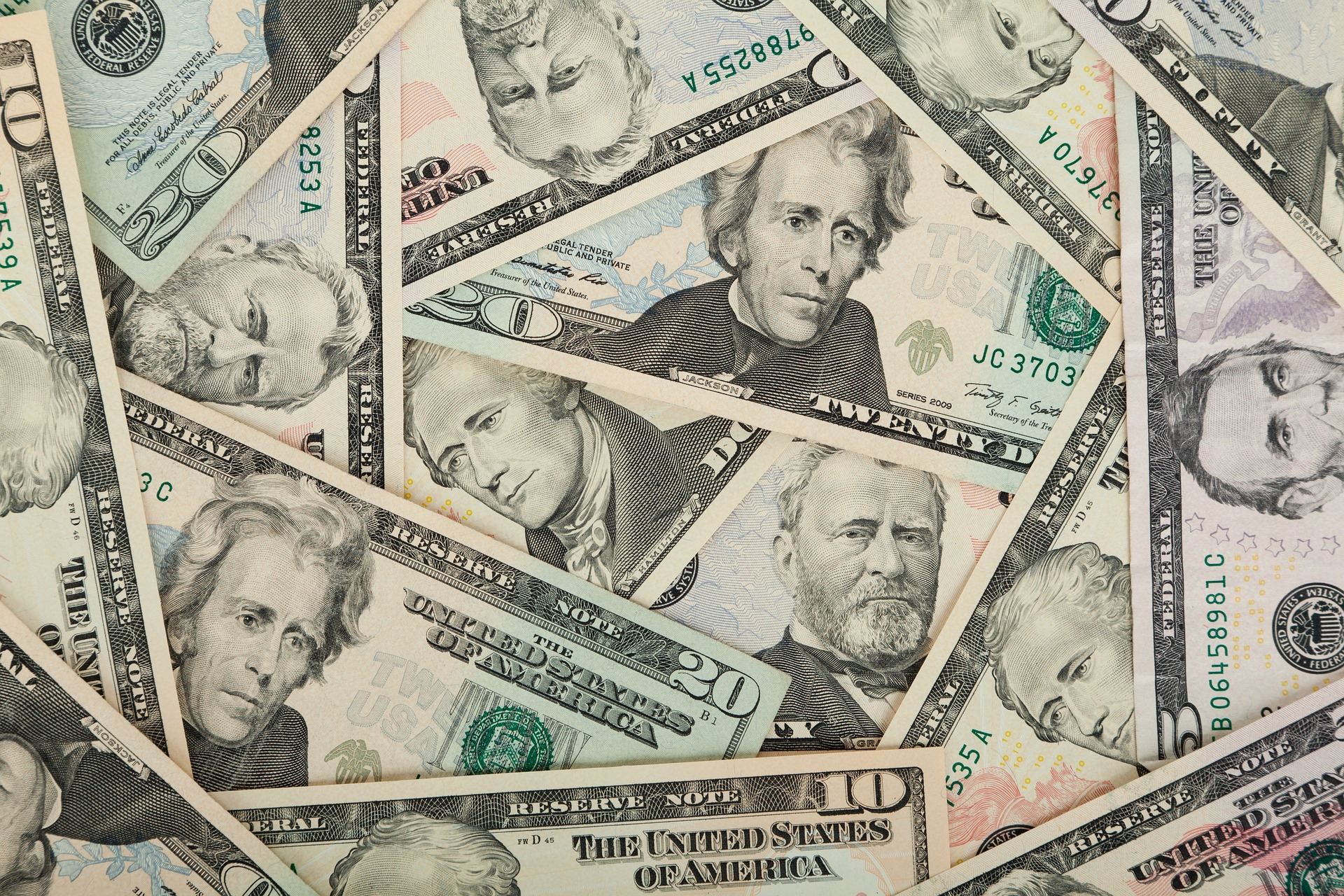There’s probably a solid chance you believe rental properties can be profitable. It’s kind of a mainstream idea that most people grew up with. But there’s probably an even more solid chance that if someone asks you exactly how rental properties make money that you may not be able to specify an answer. Yes?
Well, are rental properties profitable? How can they be profitable, and why are they worth looking into for investing?
Knowing the answer to these questions will not only help you better understand the financial benefit of rental properties so you may know if they are the right investment strategy for you, but knowing these answers will also help you while you shop around for rental properties to help ensure you choose the best property and returns.
Believe it or not, rental properties offer financial returns in five different ways. Know that not all properties offer all five, which is all the more reason to understand each one so that you can understand exactly what you are getting into with a property investment.
The 5 Profit Centers of a Rental Property
- Cash Flow. The term “cash flow” is often known but what it actually means can be a little less clear. In terms of a rental property, the cash flow is the money you profit each month after all expenses are paid. If a property is “cash flow positive”, it means you are pocketing income each month. If a property is “cash flow negative”, it means your expenses are greater than your income each month and you are losing money each month. So here’s how this works—pay all of your expenses on the property each month and see how much is left over. Keep in mind, most properties don’t actually cash flow! You have to intentionally find cash flow positive properties if cash flow is what you are looking for. Many markets in general won’t offer cash flow on properties (Los Angeles, San Francisco, New York City, most West Coast cities…), and within the markets that do have cash flow options, there are only certain areas and certain property types that will cash flow. Regardless of your investing goals—whether you are striving for cash flow or not—you need to know the cash flow on any property you are investigating as an investment option. In order to predict the cash flow, take the monthly rental income you will receive and subtract from that:
- Mortgage payment
- Property taxes
- Property insurance
- Estimate for repairs
- Estimate for vacancies
- Property management fee (if applicable)
- HOA or condo fees (if applicable)
- Utilities (if applicable)
- Lawn care (if applicable)
- Any additional expenses
Then see where you’re at for cash flow. Keep in mind as you run these numbers—very few of these expenses should be estimated. Find out the actual values in order to be as accurate as possible. Same for the income–don’t just guess at what you think the property will bring in.
- Appreciation. If you’re reading this article about real estate investing, you probably already know about appreciation. Appreciation seems to be the first thing everyone thinks of when they think of real estate. And rightfully so—it’s one of the biggest perks of real estate as an investment strategy. Now whether or not a property is going to appreciate, however, is speculative. It’s never guaranteed that it will appreciate and there are several factors that go into the level of appreciation that you will see. For instance,
- The city/market you are buying in. Different markets have seen different levels of appreciation trends over the years. For example, Los Angeles and San Francisco have had fairly consistent and significant appreciation booms, whereas Midwestern cities typically stay more stable with not as much appreciation or depreciation.
- Where in the real estate cycle you are buying/how much you pay. If you’re buying in the middle of a recession, you’re more likely to see a lot of appreciation because you’re buying cheap. If the real estate market is pretty sturdy and prices are high, appreciation either won’t be as likely or will be at smaller levels because you’re paying so much for the property. Or if for no rhyme or reason you just land a good or bad deal on price, that will impact how much you get in appreciation later.
- The property. Are you buying a distressed property that you are fixing up? Is the property a single-family home in a primarily owner-occupied neighborhood or is it a triplex in a more renter-heavy neighborhood? Different property types amongst different neighborhoods will experience different levels of appreciation.
Depending on each of these factors, you should see some level of appreciation on your property and this is a notable income stream. All of that appreciation is essentially free money to you.
- Tax Benefits. This is one of the best pieces of magic about a rental property—the tax benefits! Residential rental properties are arguably the most advantageous investment class on the tax front because, per the tax laws, rental properties both “appreciate” and “depreciate” at the same time. You already know about appreciation. The depreciation part of it is that the IRS considers the reality that wear and tear will happen to a property over time. Therefore, they give you a write-off for what they perceive this “loss” to be each year. Combine that write-off with all of the write-offs for general expenses on the property and you have so much in write-offs that you either end up with tax-free income or even a return! This depends on everyone’s individual situation of course, but the ability to receive what essentially becomes tax-free income is huge.
- Equity Build through Mortgage Pay Down. Notice in that list of expenses earlier that the mortgage payment was included in there. If you have purchased a property where the rental income is able to cover all of the expenses, including the mortgage, you have a situation now where the loan amount of your mortgage is now being continuously reduced via your tenant’s payments. Your tenant is paying down your mortgage for you. So what you owe continues to decrease, all the while you aren’t putting any of your own money into it after your initial down payment. Let’s say you buy a $100,000 property and put $20,000 into it, so you have mortgage loan for $80,000. By the time the property is paid off, that entire $80,000 has been paid off… by your tenants! So that’s an additional $80,000 in your pocket, in addition to any cash flow, appreciation, and tax benefits you’ve received along the way.
- Hedge Against Inflation. This one is less of a fixed number and more of an abstract financial benefit. It is a financial income stream though nonetheless. While inflation typically screws the pooch in most other areas of our lives, it’s actually of great value for rental properties!
The first way inflation is great for rental properties is that no matter how much inflation occurs, assuming you got a fixed-rate loan, you will continue to pay just what you bought it for. Meaning, the new inflated value of the property doesn’t change how much you bought it for or force you to pay more for your property all of a sudden. Just think if you bought a property for $20,000 in 1965 and it’s now 2018. Inflation over the last 53 years has increased the value of that property who knows how high. But you still only paid the 1965 price for it.
The second way inflation is beneficial for rental properties is in thinking of paying off your original mortgage or loan. Keep in mind that what happens during inflation is the value of the dollar goes down. So let’s say you still owe $60,000 on your loan. The worth of that $60,000 now is less than what it was originally because the value of each of those 60,000 dollars has gone down. Make sense?
Are you sold on rental properties as an investment strategy yet? (pun completely intended) Those are five pretty notable profit centers that you can make money from on a rental property.
Helpful Thoughts about Rental Properties and the 5 Profit Centers
Knowing the five profit centers is really key when you shop for a rental property because you should know ahead of time what profit centers you are focusing on with a potential property. If you choose to buy a cash flow negative property (and a lot of people do), just know that you are increasing your risk because you are eliminating one of the profit centers (cash flow) right off the bat and forcing the others to compensate for it. The major profit center remaining then is appreciation and remember that appreciation is speculative. So you are taking on some risk if your main profit center is something that you don’t have a crystal ball to predict. If, instead, you can maximize the potential for profit in as many places as you can, your chances are just that much better down the road that you indeed end up with a successful and profitable rental property.
In terms of risk, the advantage to having five profit centers is that if one of them doesn’t pan out for some reason, the others may be able to keep you in the black. Let’s say your property doesn’t cash flow for a year due to who knows what. All the while, you may still be seeing appreciation, you are still earning tax benefits, you’re still gaining with any inflation, and your mortgage is still being paid down (hopefully). Or if your property never sees any notable appreciation, it may still prove quite profitable via the other four income streams.
One last mention about rental properties is that they definitely fall under the category of “slow and steady wins the race”. Your cash flow each month might only be a couple hundred dollars. But combine that couple hundred dollars with the fact that it’s passive income—money you don’t have to work for—and then combine that with the other income streams and you could end up with significant profit and benefit down the road.
What to Look for as You Shop for Rental Properties
To help you in your search for a rental property, and to help you understand where a property falls for income potential, ask yourself these questions with each property you look at:
- Can I expect positive monthly cash flow from it?
- What is the realistic appreciation potential on it, given factors such as—the city it’s in, the property type and condition, time in the market, price, etc?
- Does my accountant approve of and support this purchase? (ask him!)
- Will the rental income cover the mortgage?
There’s a lot that goes into determining whether or not a property will make a successful and profitable rental property. First things first though, it’s all about the numbers! Start there and practice understanding each of the five rental property profit centers and you will be set up to be extremely successful down the road!

